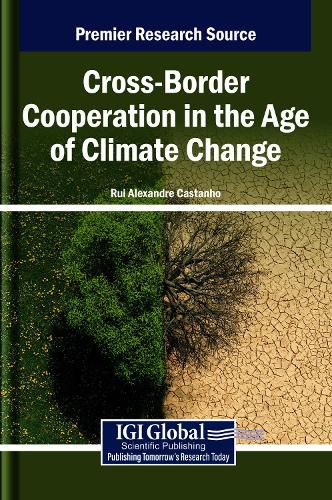Readings Newsletter
Become a Readings Member to make your shopping experience even easier.
Sign in or sign up for free!
You’re not far away from qualifying for FREE standard shipping within Australia
You’ve qualified for FREE standard shipping within Australia
The cart is loading…






This title is printed to order. This book may have been self-published. If so, we cannot guarantee the quality of the content. In the main most books will have gone through the editing process however some may not. We therefore suggest that you be aware of this before ordering this book. If in doubt check either the author or publisher’s details as we are unable to accept any returns unless they are faulty. Please contact us if you have any questions.
In the face of climate change, cross-border cooperation emerges as a pillar for effective global action. Environmental challenges like rising temperatures, weather events, and biodiversity loss do not recognize national boundaries, making international collaboration essential for progress. From joint climate agreements and technology sharing to coordinated disaster response and sustainable trade practices, countries realize that unified efforts yield greater impact than isolated initiatives. As climate risks intensify, fostering trust, aligning policies, and sharing resources across borders will be crucial to building climate resilience and driving equitable transition to a low-carbon future. Cross-Border Cooperation in the Age of Climate Change explores how border regions, often overlooked in national climate strategies, can become key arenas for sustainable development, climate adaptation, and strategic planning. It examines how transboundary cooperation fosters innovation in governance, environmental resilience, and territorial integration. This book covers topics such as data management, globalization, and environmental monitoring, and is a useful resource for policymakers, government officials, business owners, climatologists, academicians, researchers, and environmental scientists.
$9.00 standard shipping within Australia
FREE standard shipping within Australia for orders over $100.00
Express & International shipping calculated at checkout
Stock availability can be subject to change without notice. We recommend calling the shop or contacting our online team to check availability of low stock items. Please see our Shopping Online page for more details.
This title is printed to order. This book may have been self-published. If so, we cannot guarantee the quality of the content. In the main most books will have gone through the editing process however some may not. We therefore suggest that you be aware of this before ordering this book. If in doubt check either the author or publisher’s details as we are unable to accept any returns unless they are faulty. Please contact us if you have any questions.
In the face of climate change, cross-border cooperation emerges as a pillar for effective global action. Environmental challenges like rising temperatures, weather events, and biodiversity loss do not recognize national boundaries, making international collaboration essential for progress. From joint climate agreements and technology sharing to coordinated disaster response and sustainable trade practices, countries realize that unified efforts yield greater impact than isolated initiatives. As climate risks intensify, fostering trust, aligning policies, and sharing resources across borders will be crucial to building climate resilience and driving equitable transition to a low-carbon future. Cross-Border Cooperation in the Age of Climate Change explores how border regions, often overlooked in national climate strategies, can become key arenas for sustainable development, climate adaptation, and strategic planning. It examines how transboundary cooperation fosters innovation in governance, environmental resilience, and territorial integration. This book covers topics such as data management, globalization, and environmental monitoring, and is a useful resource for policymakers, government officials, business owners, climatologists, academicians, researchers, and environmental scientists.